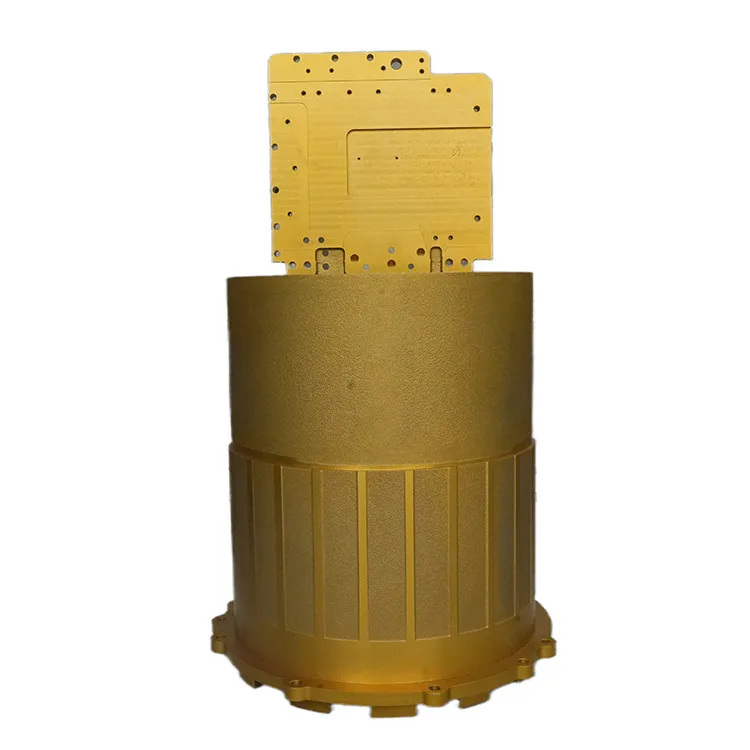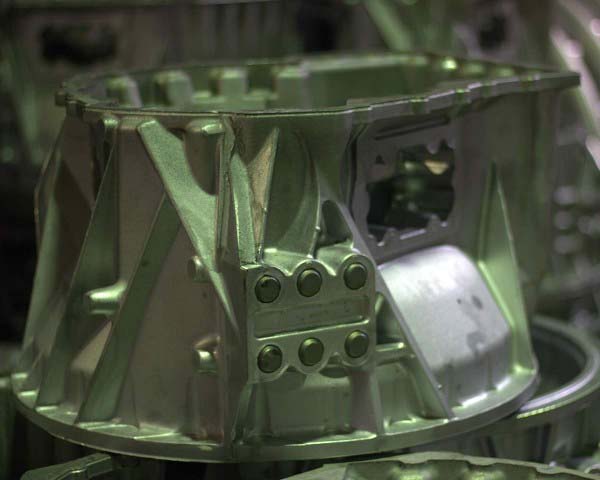Discover the Benefits of Aluminum Casting in Modern Production
Aluminum casting has become an essential procedure in modern production. Its light-weight yet robust nature presents considerable benefits for various sectors. The ability to achieve elaborate designs and maintain tight tolerances adds to its appeal. aluminum casting. Furthermore, the cost-effectiveness and ecological benefits make it a lasting option. As makers seek ingenious remedies, the function of aluminum casting remains to advance. What particular applications and advantages wait for exploration in this vibrant field?
Solid yet lightweight: The Benefits of Aluminum
Although several products are utilized in manufacturing, aluminum attracts attention as a result of its exceptional combination of lightweight residential properties and exceptional stamina. This unique feature makes aluminum a perfect choice for numerous applications, specifically in markets such as automobile, aerospace, and construction. Its reduced density enables simpler handling and transport, adding to lowered power consumption during manufacturing and setting up processes.
In addition, aluminum's strength-to-weight ratio is impressive, allowing manufacturers to develop long lasting components without adding unneeded bulk. This particular is particularly valuable in sectors where weight reduction can bring about boosted fuel efficiency and total performance. Furthermore, aluminum's resistance to deterioration improves the long life of products, additionally solidifying its appeal in contemporary manufacturing.
Inevitably, the lightweight yet solid nature of aluminum placements it as a favored product, fostering advancement and effectiveness across several fields. Producers progressively identify that these advantages can bring about significant developments in style and performance.
Precision and Intricacy in Layout
As producers accept the abilities of aluminum casting, they find brand-new opportunities for precision and intricacy in style. This production procedure permits the development of complex forms and comprehensive functions that standard techniques usually battle to attain. The fluidness of liquified aluminum allows it to fill up complicated mold and mildews, causing parts with limited resistances and fine surface area coatings.
This precision is particularly valuable in industries such as aerospace and automobile, where exact requirements are essential for performance and safety and security. Aluminum casting additionally fits innovative designs that enhance functionality without compromising structural stability.

Cost-Effectiveness and Effectiveness
Cost-effectiveness and effectiveness are paramount considerations for suppliers checking out aluminum casting as a production method. Aluminum casting deals substantial cost advantages because of its lower material costs compared to various other steels (Precision aluminum casting). The lightweight nature of aluminum minimizes delivery and handling expenses, and its superb thermal conductivity permits quicker cooling times throughout the casting procedure, boosting general manufacturing rate
Aluminum's adaptability allows manufacturers to create complicated shapes and layouts, reducing the demand for added machining or assembly. This streamlining of production not just decreases labor costs however additionally shortens lead times, allowing firms to react quickly to market needs.
Moreover, the resilience and rust resistance of aluminum castings contribute to longer item life expectancies, lowering replacement prices over time. As a result, manufacturers can accomplish a balance of top notch output and reduced operational costs, making aluminum casting an increasingly eye-catching option in site link contemporary manufacturing.
Ecological Sustainability of Aluminum Casting
Aluminum casting stands out as an ecologically lasting production option, specifically as a result of its recyclability and reduced ecological footprint. The process permits for the effective usage of aluminum, a product that can be recycled forever without shedding its residential properties. This particular considerably reduces the demand for virgin aluminum, consequently decreasing and conserving natural resources energy intake connected with extraction and processing.

Applications Across Industries: From Automotive to Aerospace
While varied sectors remain to look for ingenious products for manufacturing, aluminum casting has shown to be a versatile remedy across industries such as automobile and aerospace. In the automobile market, aluminum spreadings add to light-weight vehicle styles, improving fuel efficiency and performance. Components like engine blocks, transmission housings, and wheels profit from aluminum's strength-to-weight proportion.
In aerospace, aluminum casting plays a significant role in generating complex components that call for high resilience and low weight. Airplane parts such as braces, touchdown gear, and architectural structures utilize aluminum for peak performance and security.
The versatility of aluminum casting allows it to provide to other sectors, consisting of customer electronic devices, aquatic, and commercial machinery. This flexibility not only meets the specific needs of different applications yet additionally supports continuous advancement in making procedures. As a result, aluminum casting stays a vital gamer in contemporary production across various sectors.
Regularly Asked Inquiries
Exactly How Does Aluminum Casting Contrast to Other Steel Casting Processes?
Aluminum casting deals remarkable strength-to-weight ratios, faster cooling prices, and outstanding deterioration resistance compared to other steel casting processes. These advantages make it ideal for different applications, improving effectiveness Check This Out and performance in manufacturing.
What Are the Normal Lead Times for Aluminum Casting Projects?
Typical lead times for aluminum casting tasks vary from two to eight weeks, relying on elements such as intricacy, order dimension, and production capability. Reliable preparation can help minimize delays and improve task timelines.
Can Aluminum Casting Be Used for Intricate Designs?
Aluminum casting can without a doubt accommodate elaborate styles. Aluminum Casting Company. Its fluidness permits comprehensive patterns and shapes, making it appropriate for intricate elements in different industries. This flexibility enhances design liberty while maintaining structural integrity and Click This Link performance
What Post-Processing Options Are Available After Aluminum Casting?
Post-processing options for aluminum casting consist of machining, polishing, surface area treatments, anodizing, and welding. These techniques enhance the finish, enhance dimensional precision, and increase deterioration resistance, thus optimizing the last product's performance and aesthetic allure.
How Do Temperature Level Adjustments Affect Aluminum Casting Quality?
Temperature adjustments substantially influence aluminum casting quality by impacting fluidness, solidification prices, and potential flaws. Quick air conditioning can bring about enhanced brittleness, while too much warmth might cause warping or incomplete filling of mold and mildews during casting.
Aluminum casting has emerged as an essential procedure in modern-day production. As suppliers embrace the abilities of aluminum casting, they uncover brand-new methods for precision and intricacy in style. Aluminum casting procedures normally produce fewer greenhouse gas exhausts contrasted to other steel casting approaches. While varied markets proceed to look for cutting-edge products for production, aluminum casting has actually shown to be a flexible option across sectors such as automotive and aerospace. In the automobile market, aluminum spreadings contribute to lightweight vehicle designs, enhancing fuel efficiency and performance.